
Educator Resource Library
This curated suite of resources is designed to provide educators and repair advocates with valuable tools to integrate teaching about repair into any educational setting. Created by educators and repair experts, resources include pedagogy, program design, lesson plans, supplementary materials, activities and projects.
By engaging youth in hands-on repair activities, educators help foster critical thinking skills, creativity, awareness of the environment, and agency. While these programs do provide practical skills, they are principally about developing students’ thinking skills, cultivating a mindset of care for the material world, and empowering students to assume full ownership of the objects in their lives.
Visitors are invited to help expand this catalogue by suggesting additions and/or by applying for a grant to develop new resources.
Select any number of values in the filters below.
Teaching packs linking repair with sustainability. Comprehensive instruction — light hands-on.
Source — Djapo, Leuven, Belgium; and Sharepair, the European Union
Age — 10 - 12 years old - Volume 1
Age — 14 - 18 years old - Volume 2
Cost — Free
Go to — Make It Work!
Comprehensive guidebook outlining how to set up an after-school program to teach students how to repair salvaged computers.
Source — Riot Refurb, South Portland High School, Maine, USA
Age — High school (14 - 18 years old)
Cost — Free
Go to — Riot Refurb Program
Pedagogy, teaching and learning strategies, tools, and classroom materials. Demonstrates the broad scope of teaching opportunities repair offers.
Source — Agency by Design Oakland; Maker Ed, Berkeley, California, USA
Age — K - 12th grade (5 - 18 years old)
Cost — Free download, (hardcopy available at cost)
Go to — The Toolkit
Materials to organize and teach an after-school enrichment program, culminating in a school-sponsored community repair event.
Source — The Restart Project, London, UK
Age — 7th - 12th grade (13 - 18 years old)
Cost — Free
Go to — Restart at School Website
Two anthologies of well-selected resources addressing core repair issues, from environmental to political to economic; citations for further research; practical how-to’s.
Source — iFixit, USA and worldwide
Age — Middle school and up (12 years old and up)
Cost — Free
Go to — Explore
Go to — Educator Resources
These workshop materials include educational slides, lesson plans, supply lists, budget forms, templates and videos.
Source — High School of Fashion Industries (HSFI) and Repair Shop, New York, USA
Age — 9th - 12th grade (14 - 18th years old), adaptable for 6th - 8th grades (12 - 14 years old)
Cost — Free
Go to — Repair Shop
Lesson plans and quizzes for teaching students how to repair and upgrade salvaged computers.
Source — Alfond Youth and Community Center, Maine, USA
Age — 3rd - 7th grade (9 - 14 years old)
Cost — Free
Go to — Computer Club Curricula
Lesson plan and workshop guide for connecting hands-on repair and environmental awareness by guiding young children through repairing their own stuffed toys.
Source — WNC Repair Cafe, North Carolina, USA
Age — 1st - 4th grade (ages 6 - 10)
Cost — Free
Go to — Stitching Stuffies
Slides for teaching a one-week repair unit in a middle school STEM/Maker class.
Source — BUSD MakerSpaces & Climate Literacy Initiative
Age — 6th - 8th grade (12 - 14 years old)
Cost — Free
Go to — BUSD Repair Unit
Three short animations address e-waste, the pressure to replace gadgets, and the materials inside them.
Source — The Restart Project, London, UK
Age — All ages
Cost — Free
Go to — Videos
Very accessible, animated video addressing consumption, the linear and circular economies, and where repair fits into caring for the earth.
Source — Share and Repair Bath, UK
Age — All ages
Cost — Free
Go to — Video (2:40 min)
A lesson introducing learners to the molecular science behind adhesion, with reflection exercises, bringing repair and sustainability into the science classroom.
Source — Barnard College, Columbia University, New York, NY USA
Age — Designed for K - 8 ( 5 - 14 years old); adaptable to high school (14 - 18 years old)
Cost — Free
Go to — Science of Adhesives
Video describing an on-campus, student-run repair program.
Source — Ethical Culture Fieldston School
Age — Middle school and up (13 years old and up)
Cost — Free
Go to — Video (4:33 minutes)
Teacher lesson plan and student worksheets.
Source — Rethink Waste, California USA
Age — 3rd - 5th grade (9 - 11 year olds)
Cost — Free
Go to — Another “R”: Repair!
Repair-centered lessons and activities, and supplementary resources.
Source — iFixit, USA and worldwide
Age — K - 12th grade (5 - 18 years old)
Cost — Free
Go to — iFixit K-12 Educator Tool Chest
Ten lesson plans tied to multiple subject areas. One hour each. Linked to Primary National Curriculum, adaptable to any school context.
Source — Malvern Hills Repair Cafe, UK
Age — Ages 10 - 11; adaptable to 7 - 14 year olds
Cost — Free
Go to — Education Packet
Go to — Outline of Links to English, Science, Geography and History
Lesson plans, learning intentions, materials required, etc. Linkages to UK national curriculum standards, adaptable to any school context.
Source — Repair What You Wear, UK
Age — Ages 6 - 18
Cost — Free
Go to — Fashion and the Environment
Education and Community Repair Events: Information and videos about grass-roots action — Repair Cafés, Fixit Clinics, Restart Parties, and local, independent initiatives — and teaching about repair.
Sources — Various
Age — All ages
Cost — Free
Classroom materials for a school-based community repair event.
Source — Repair Café Foundation, Amsterdam, The Netherlands
Age — Elementary / Primary and middle school (6 - 8 year olds)
Cost — Sliding Scale, recommended: 25€
Go to — Starter Kit
Library of essays, articles and videos from a wide range of publications about why repair is important.
Source — iFixit, USA and worldwide
Age — High school and up (14 years old and up)
Cost — Free
Go to — Why Repair Matters
Hands-on learning kits for the classroom, tied to science, tech, and sustainability education. Streamlined home kits.
Source — Team Repair, UK
Age — 10 - 14 years old
Cost — Varies by product — UK only at present (September 2024)
Go to — Team Repair
Lesson plans, curriculum links and lesson resources.
Source — Encounter Edu, UK
Age — Ages 11 - 14
Cost — Free trial
Go to — Ocean Plastics
Resource for students to explore where and how the materials in our phones are sourced.
Source — The Restart Project, London, UK
Age — Upper elementary school and up (8 years old and up)
Cost — Free
Go to — Materials Matter
Poster: “We Hold These Truths To Be Self-Evident…”
Source — iFixit, USA and worldwide
Age — All ages
Cost — Free (almost)
Go to — Poster
Lesson plans
Source — Facing The Future, Western Washington University, USA
Age — High school (14 - 18 years old)
Cost — Free
Go to — Download pdf
A wealth of accessible materials about the impact of over-consumption, repair-based solutions, the repair movement, and opportunities for action.
Source — unbroken.solutions
Age — Middle school and up (13 years old and up)
Cost — Free
Go to — unbroken.solutions
Lesson plans
Source — Design Minds - State Library of Queensland, Pimpama State Secondary College; and Relative Creative, a design firm in Australia
Age — Australian Teaching Levels 7 - 12 (13 - 18 years old)
Cost — Free
Go to — Toolkit
Video discussing our relationship with electronics, with a call to commitment to change it.
Source — The Restart Project, London, UK
Age — All ages
Cost — Free
Go to — Video (< 1 minute) and text about The Restart Code
Design and Technology poster about the 6 R’s — Reduce, Reuse, Refuse, Recycle, Rethink, Repair.
Source — Tes, UK
Age — All ages
Cost — £1
Go to — Six R’s Poster


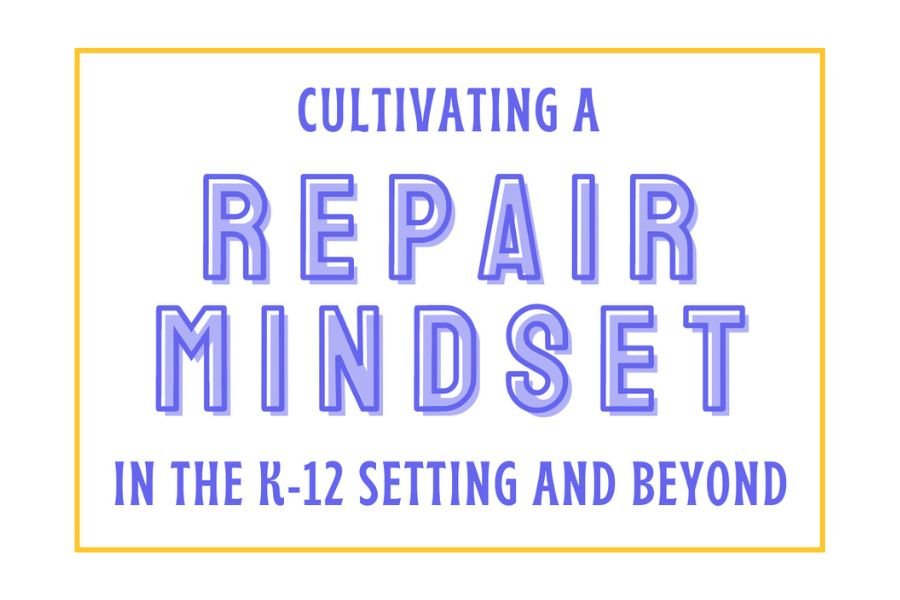







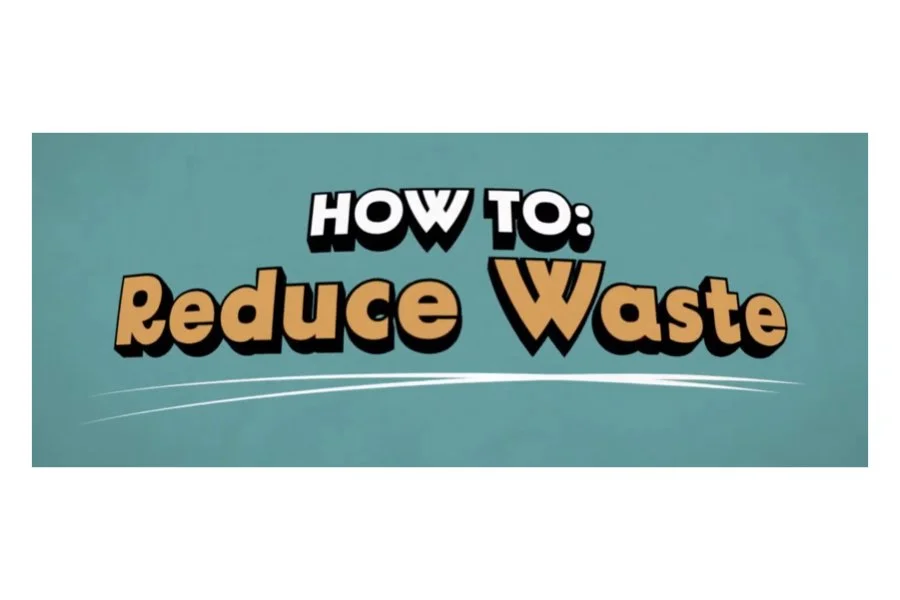


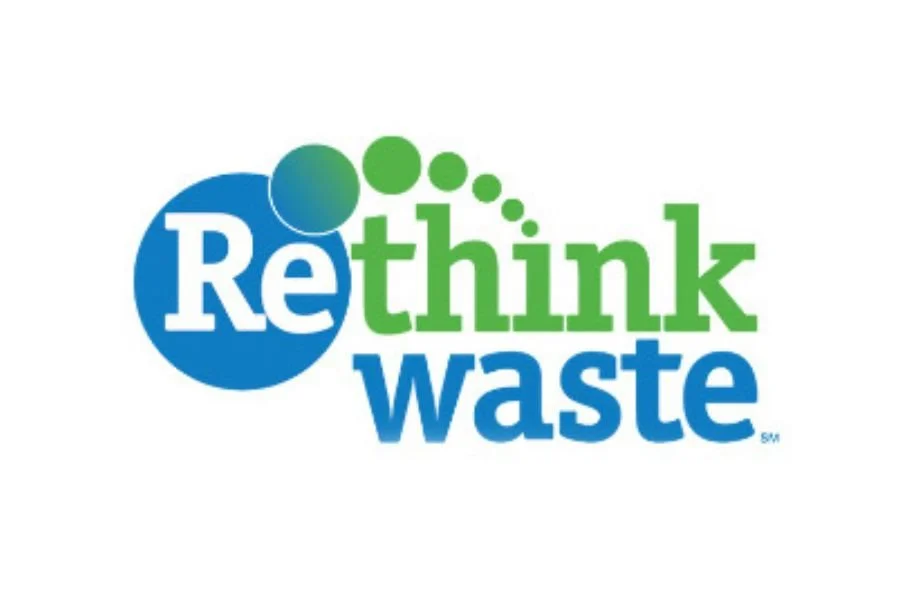










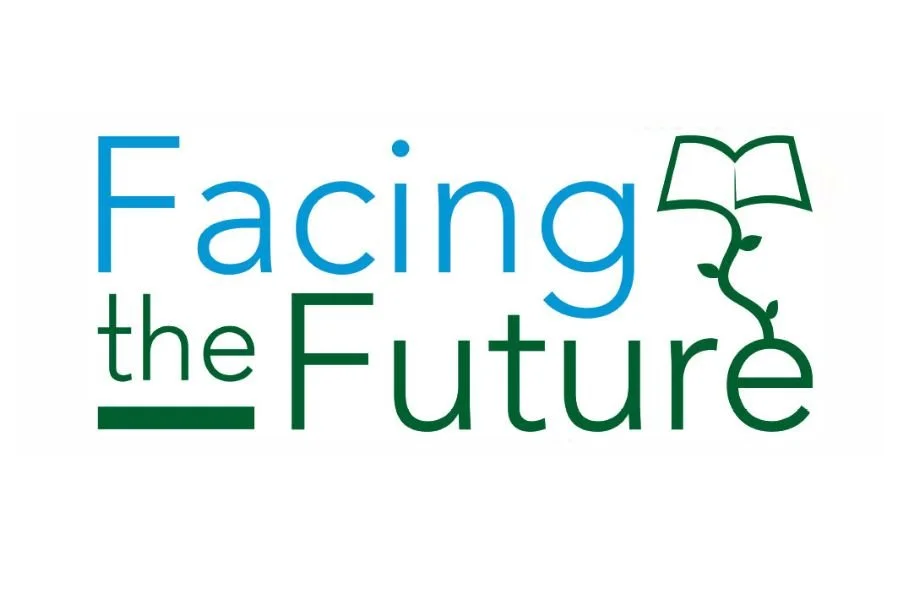




Comprehensive handbook for establishing a student-run repair program in schools.
(in English, Spanish and German — French is forthcoming)
Source — Rudolf Steiner School, Munich, Germany
Age — 5th - 12th grade (11 - 18 years old)
Cost — Free download (English hardcopy available at cost)
Go to — Fixing Things for the Future